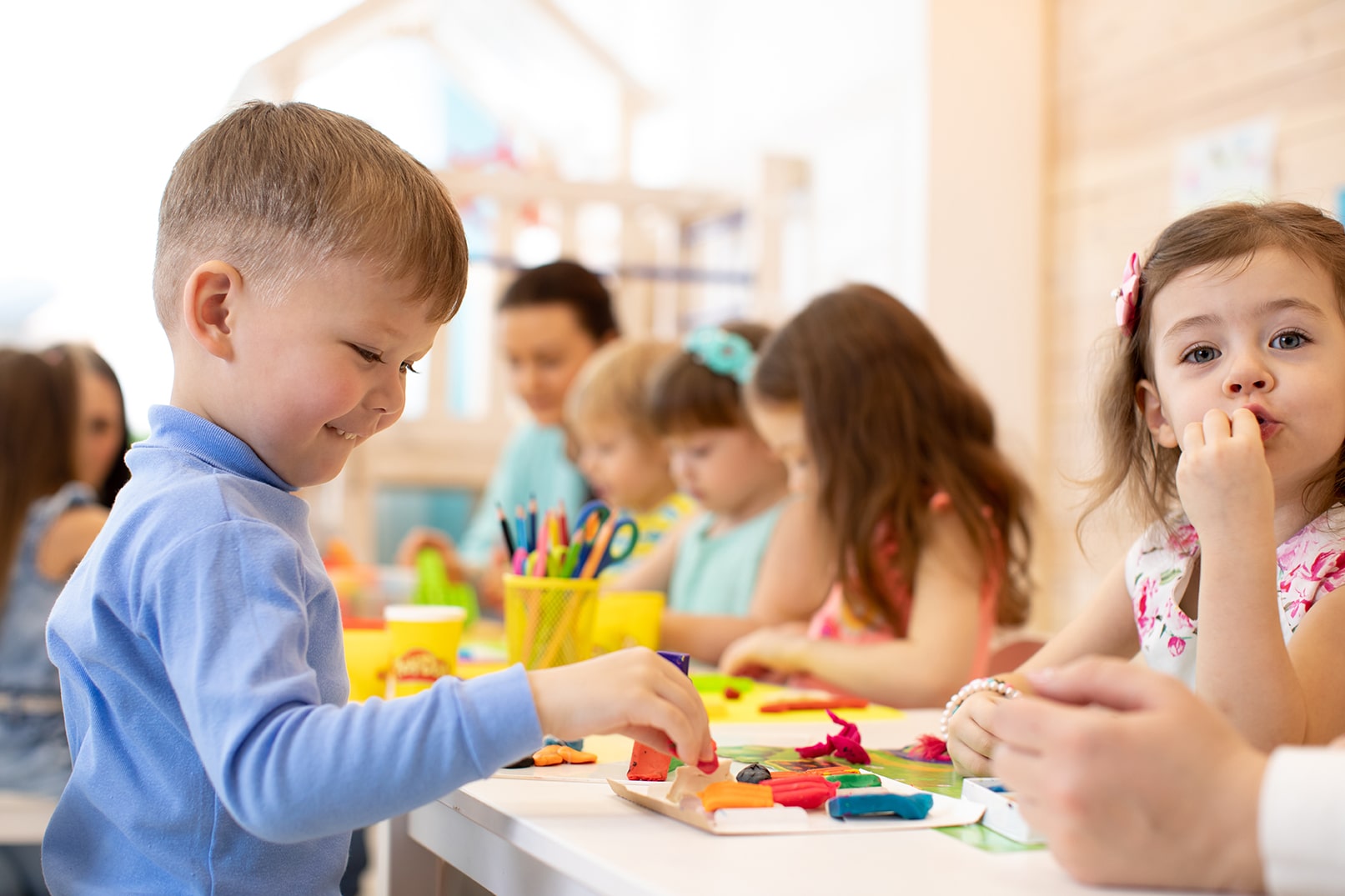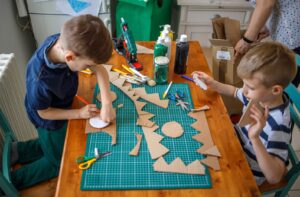Your children are growing their brains every day! While its easy to picture learning in a classic school environment, many skills children learn can be done in fun ways.
Crafting is more than just a fun and creative activity for children—it’s a valuable tool for their development. When children engage in crafts, they are not only making something beautiful but are also developing a variety of important skills that will serve them well throughout life. Here’s a look at some of the key skills children develop when they do crafts.
1. Fine Motor Skills Crafting activities like cutting, gluing, and drawing require children to use their hands and fingers in precise ways. These actions help strengthen fine motor skills, which are essential for tasks like writing, buttoning shirts, and even feeding themselves. The more a child practices with scissors or placing tiny beads on a string, the better their hand-eye coordination becomes.
2. Creativity and Imagination One of the most obvious benefits of crafting is the opportunity to foster creativity. Children learn to think outside the box, experiment with colors, shapes, and materials, and bring their ideas to life. Whether they’re designing a paper plate animal or painting a picture, crafting encourages imaginative thinking and problem-solving.
3. Patience and Focus Crafting requires children to focus on the task at hand. They learn to follow steps, whether it’s waiting for glue to dry or carefully finishing a project. This helps them develop patience and attention to detail, which are important skills for academic success and life in general.
4. Self-Esteem and Confidence When children complete a craft project, they experience a sense of accomplishment. This boosts their self-esteem and confidence in their abilities. It shows them that with effort, they can create something from scratch and be proud of their work, fostering a sense of pride in their creations.
5. Problem-Solving Crafts often involve trial and error. Whether a glue bottle is malfunctioning or a project isn’t turning out as expected, children learn how to troubleshoot and adapt. Problem-solving skills that children develop during craft time can be applied to many other areas of life.
6. Emotional Expression Crafting provides a safe space for children to express their feelings. Whether they’re making a gift for someone they love or creating something abstract to represent their emotions, arts and crafts allow children to process and express their thoughts and feelings in a tangible way.
7. Social Skills When children work on crafts in groups, they develop important social skills. They learn how to share materials, cooperate on a project, and communicate their ideas with others. These interactions are an excellent way for children to practice teamwork and respect for others’ contributions.
In conclusion, crafting is more than just a fun way to pass the time. It’s an opportunity for children to develop a wide range of skills that will benefit them now and in the future. From fine motor skills to creativity and confidence, crafts offer children a chance to grow in many important areas. So next time your child picks up a glue stick or paints a picture, remember: they’re learning and developing valuable life skills!







